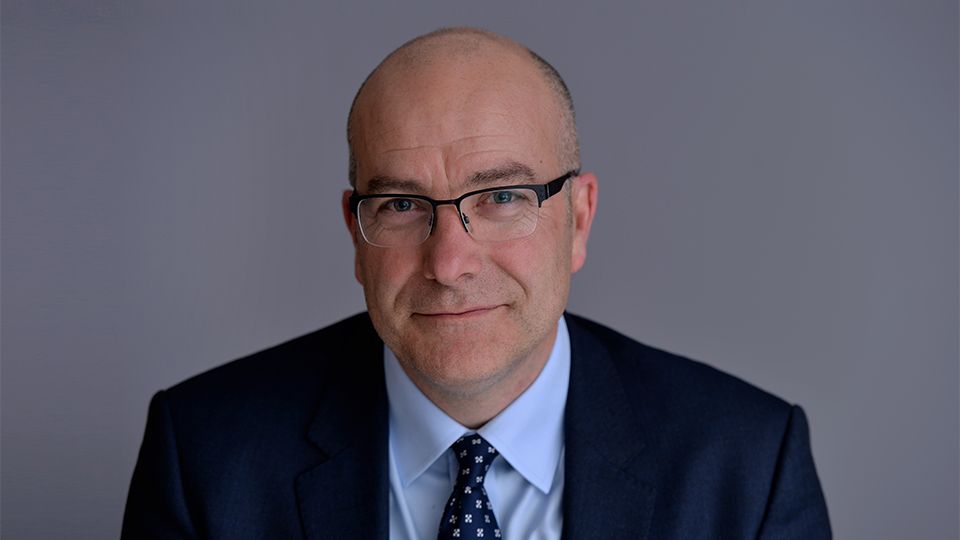There is a risk the current momentum towards the green transition will be “unstuck” if voters are not brought along and convinced it is a just transition, Nick Hurd, chair of the G7 Impact Taskforce told a Green Horizon Summit on Finance Day at COP26.
Hurd told panellists the public need to see it as “an agenda to prosperity” because where a referendum on net-zero targets is being mooted in the UK, the conversation will also be happening in other countries around the world such as South Africa, India and Indonesia.
“Don’t underestimate political difficulty,” he warned. “We’re about to step into the difficult bit of the energy transition, which is changing how we heat our homes etc. Arguably, we have done the relatively easy bit. The [UK] prime minister knows that you’ve got to have a story, and you have got to bring people along with you.”
Anne Valentine Andrews, global head of real assets, managing director at Blackrock, also expressed concern that although the green transition is full of exciting opportunities, which the public should know about, many voters around the world are not on board.
She said they need to feel more fear about the consequences of not acting fast enough on climate: “There does need to be a more unifying, scary message out there to get people to act, but also to [convey] this is a hugely exciting opportunity in our lifetime.”
China’s route
Meanwhile, Ma Jun, founder and president of the Institute of Finance and Sustainability discussed getting the pace of change right in China. He said when it came to working with the private sector on sustainable finance, it was important they should not be left to their own devices on things that needed to move rapidly, like establishing a green taxonomy.
“It would take [the private sector] many years to come up with a taxonomy, but within the government … we can quickly mobilise the expertise and develop the taxonomy within six months or 12 months – that’s what we did for [China’s] green bond taxonomy,” said Jun.
He also said corporate disclosures on climate in China were not moving fast enough with the current voluntary regime: “[There is consensus that] disclosure needs to move towards a mandatory arrangement. We started with some voluntary and semi-voluntary guidance – it’s not working well.
“You have to force the corporates and financial institutions to disclose information on the environment, climate and also biodiversity.”
Jun added China’s recent increase in coal power was no major setback to its national climate goal. “There are lots of reasons contributing to the shutdown of factories and traffic lights in China. It’s a short-term reaction that involved some additional coal consumption, but it has very little impact on the long-term trajectory of our carbon neutrality goal.”
Net-zero finance for emerging markets
Later in the session, Stephanie von Friedeburg, senior vice-president, operations, at International Finance Corporation (IFC) said climate projects in emerging markets should seek funding from the $100trn of capital available for net-zero goals to attract investors looking for yield.
She told panellists not enough projects in emerging markets are bankable, but this could be addressed with targeted capital including with philanthropic money, public-private partnerships structured by international financial institutions like IFC.
“The third place we need to be looking for capital is the $100trn of companies that have pledged to get to net zero by 2050. They don’t know how to get off the taxi rank and they need carbon credits. I think we can marry those two things together and create some of the first loss and blended finance that we need to pull into those.
“If we get that right then we can turn to the institutional investors that are looking for the yield we can pull out of emerging markets,” said Von Friedeburg.
Hurd added there was an “enormous” role in emerging markets for multilaterals such as international financial institutions who could co-invest with other actors because they can do things mainstream commercial institutions could not.
“[They can deploy] capital that adjusts the risk profile for others such as guarantees where the evidence shows they have an enormously catalytic effect. But they are clearly under-deployed by the institutions we are looking to for leadership and courage in this space.”
Tech solutions
Von Friedeburg also noted some caution around technology solutions expecting to provide environmental aid in emerging markets, highlighting the cost of solar panels has gone up 25% during the past couple of months, largely due to supply chain disruptions.
She said we need to consider how blended finance could be used to quickly drive down the cost curve of renewable energy technologies like green hydrogen and carbon capture, which are currently “too expensive for Africa.”
“I’m not convinced that wind and solar are the long-term solution. They’ve helped us reach where we are today, but I think there are going to be some really interesting new technologies.
“Green hydrogen is coming rapidly but it’s too expensive; it’s four cents, when it needs to be a cent and a half to actually work in emerging markets, but I think we can drive the cost curves down.”









